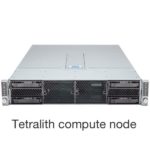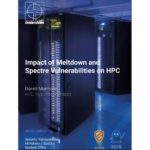The Taurus Group in the Netherlands has acquired European HPC specialist ClusterVision. “The ability to bring ClusterVision into the portfolio is very important for our HPC strategy and future growth, “says “We have a long history in the distribution of storage, networks and compute. We believe that the integration of closely linked corporate vertical will ultimately bring significant scale, synergy and a thriving circular economy to the entire group.”
ClusterVision to build Scandinavia’s Most Powerful Supercomputer
Today Sweden’s National Supercomputing Centre (NSC) at Linköping University announced it has awarded ClusterVision a contract to build its new flagship cluster, Tetralith. Available to all researchers in Sweden, the 4 Petaflop machine will be Scandinavia’s most powerful yet with 60,544 cores based on Intel Xeon.
Impact of Meltdown and Spectre Vulnerabilities on HPC
“Performance is important in high performance computing. A performance impact on HPC use can be more than a simple annoyance. Because of the high investment cost and energy usage of HPC systems, a performance impact can have a signi cant effect on price per compute job. As we have discussed in the previous sections, the “page table isolation” workarounds have an overhead on entering and leaving the kernel. Luck happens that in HPC, computers spend most of their time in user space, doing computations. Low-latency networks such as In niband allow HPC systems to perform network communication without involving the kernel. Therefore during HPC computations, the Linux kernel might not be actively involved and the CPUs are running at full power.”
ClusterVision White Paper Looks at HPC Performance Impact of Spectre and Meltdown
While various kernel patches are already out for the Spectre and Meltdown, the performance impact of these patches on HPC performance has been a big question. Now ClusterVision has published a timely white paper on this important topic. “These vulnerabilities have only been discovered recently, so information is still developing. Therefore, this document should not be interpreted as a complete overview of the situation but as an informative view of the potential impact on HPC.”







